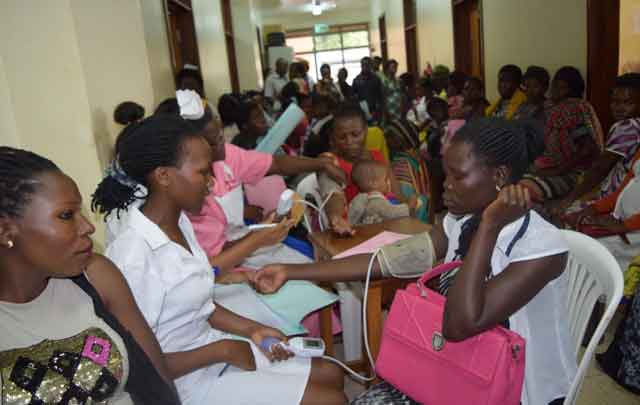
Kampala, Uganda | THE INDEPENDENT | The number of babies being born dead in Uganda is alarmingly on the rise, even as the globally, the percentage of stillbirths is showing some decline. A worrying nine percent increase in stillbirths have been registered over the decade just ended from 2010 to 2019.by the
The staggering increase has been officially revealed today by the United Nations Children’s Fund and the World Health Organization collaborating with the World Bank Group, in a report titled ‘A Neglected Tragedy-The Global Burden of Stillbirths’.
Official statistics indicate that some 1.6million babies are now being born in Uganda in a year, with with some 45,000 dying during birth and an almost equal number being stillborn. In means that a hundred babies are already dead at birth.
The UNICEF/WHO report attributes the high occurrence of stillbirths in the country to untreated infections of mothers, bleeding and malaria.
Dr Livingstone Makanga, principal medical officer for reproductive health at the ministry of health also attributes the increase in the number of stillbirths to low skills of health workers. He says often health workers do not have the ability to detect infections or pregnancy complications that might result in stillbirths so as to stop them before they occur.
According to WHO, 20 percent of the stillbirths recorded in Africa are as a result of malaria. One of the measures recommended by WHO to reduce the occurrence of stillbirths is increasing antenatal visits to a minimum of eight for expectant mothers. While Uganda adopted the policy in 2018, to date it has never been implemented.
Dr Makanga says the ministry of health are working on rolling out the policy sometime in the near future.
“We have bene training health workers and we hope that soon we shall be able to roll out this policy which will help us reduce the number of still births that we are reporting,” he said.
The report says despite advances in health services to prevent or treat causes of child death like scans, progress in lowering the stillbirth rate has been slow. From 2000 to 2019, the annual rate of reduction in the stillbirth rate was just 2.3 per cent worldwide, compared to a 2.9 per cent reduction in neonatal mortality, and 4.3 per cent in mortality among children aged 1–59 months.
The UN health bodies now call for strong policies, programmes and investments to reduce still births.
Dr. Tedros Adhanom Ghebreyesus, the WHO director general says governments need to increase investments in skilling nurses and midwives.
“Welcoming a baby into the world should be a time of great joy, but every day thousands of parents experience unbearable sadness because their babies are still born; the tragedy of stillbirth shows how vital it is to reinforce and maintain essential health services, and how critical it is to increase investment in nurses and midwives,” he said.
Henrietta Fore, the executive director -UNICEF says that stillbirths can be prevented if countries concentrate on providing proper antenatal care and skilled birth attendants for mothers.
“Losing a child at birth or during pregnancy is a devastating tragedy for a family, one that is often endured quietly, yet all too frequently, around the world,” she said. “Every 16 seconds, a mother somewhere will suffer the unspeakable tragedy of stillbirth. Beyond the loss of life, the psychological and financial costs for women, families and societies are severe and long lasting. For many of these mothers, it simply didn’t have to be this way. A majority of stillbirths could have been prevented with high quality monitoring, proper antenatal care and a skilled birth attendant.”
Data from UNICEF shows that 21 babies per 1,000 births in Africa end up as stillbirths. The report estimates that if nothing is done, Uganda will not be able to meet its 2030 global target of reducing the number of newborn deaths to 12 per 1000.
Global statistics show that one baby is born dead every 16 seconds of a day. I f nothing is done to correct this, the report warns that the COVID-19 pandemic could worsen the global number of stillbirths.
********
URN
 The Independent Uganda: You get the Truth we Pay the Price
The Independent Uganda: You get the Truth we Pay the Price


